American Experience - Season 12

Season 12

Episodes
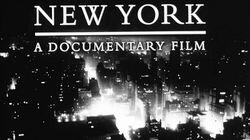
New York: The Country and the City 1609-1825
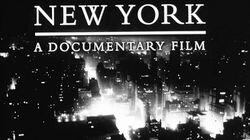
New York: Order and Disorder 1825-1865
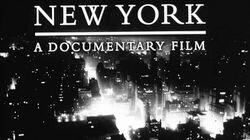
New York: Sunshine and Shadow 1865-1898
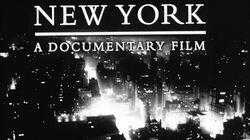
New York: The Power and the People 1898-1918
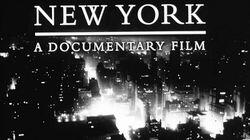
New York: Cosmopolis 1919-1931
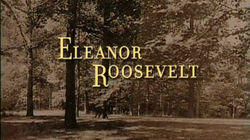
Eleanor Roosevelt
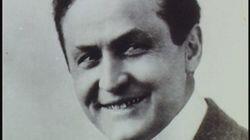
Houdini
This american experience tells the story of history's greatest showman,
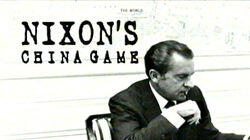
Nixon's China Game
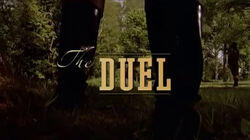
The Duel
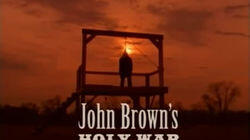
John Brown's Holy War
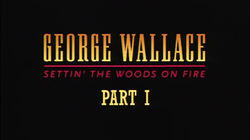
George Wallace: Settin' the Woods on Fire Part I
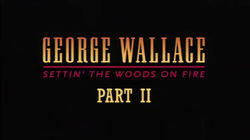
George Wallace: Settin' the Woods on Fire Part II
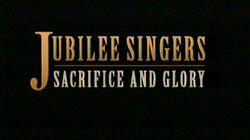
Jubilee Singers: Sacrifice and Glory
On November 16, 1871, a group of unknown singers — all but two of them former slaves and many of them still in their teens -- arrived at Oberlin College in Ohio to perform before a national convention of influential ministers. After a few standard ballads, the chorus began to sing spirituals -- "Steal Away" and other songs" associated with slavery and the dark past, sacred to our parents," as soprano Ella Sheppard recalled. It was one of the first public performances of the secret music African Americans had sung in fields and behind closed doors.
"Jubilee Singers: Sacrifice and Glory," produced by Llewellyn Smith, tells the story of a group of former slaves who battled prejudice and oppression to sing their way into a nation's heart. Eventually, they would perform for presidents and queens, tour the United States and Europe, and establish songs like "Swing Low, Sweet Chariot" and "This Little Light of Mine" as a cherished part of the nation's musical heritage. The program features today's Fisk Jubilee Singers performing these and many other spirituals; Dion Graham narrates.
The concert in Oberlin was the turning point in a daring fundraising experiment for impoverished Fisk University in Nashville, Tennessee, where the singers were students. Established in January 1866, Fisk taught freed slaves how to count their wages, how to write the new names they had chosen for themselves, and read both the ballot and the Bible. Despite emancipation, the South was a dangerous place: Fisk students who dared teach in the countryside were routinely assaulted and whipped by Ku Klux Klan nightriders; one was shot at in his classroom; another had her school building burned to the ground.
Charged with keeping the financially troubled school afloat, treasurer George Leonard White proposed taking Fisk's most gifted singers on a fundraising tour of the North. Before they even left town, they encountered resistance: the parents were afraid to let their children go; White's fellow teachers opposed the tour; and the American Missionary Association, the northern religious organization that operated Fisk, refused to help, worried that the chorus's appeal for funds would jeopardize their own fundraising activities. But White persevered.
Following the path of the Underground Railway, the group made its debut in Cincinnati. Despite the warm reception, donations totaled less than $50. Night after night, it was the same: crowds loved their singing, but the collection plate yielded barely enough to cover their expenses. Yet, no one turned back.
Life on the road took its toll. White and the singers endured rheumatism, bronchitis, chronic coughs. Their clothes ran to rags. But after the triumphant Oberlin performance, word started to spread. In December, the Jubilee Singers appeared at Henry Ward Beecher's weekly prayer meeting at Brooklyn's Plymouth Church. "Every church wanted the Jubilee Singers from that time on," wrote Maggie Porter. They sang for Mark Twain, President Ulysses S. Grant, congressmen, diplomats.
After less than two weeks' rest, the singers were back on the road, touring the Eastern United States. Eventually, they would tour Europe to universal acclaim and sing for the royal families of Holland, Germany, and Britain.
The group raised what today would be millions of dollars, but they paid a terrible price. Worn down by the relentless schedule, an advance man suffered a nervous breakdown. George White lost his wife to typhoid fever. White himself nearly died of a pulmonary hemorrhage. Contralto Minnie Tate's voice was torn to shreds. Tenor Benjamin Holmes's nagging cough was caused by tuberculosis. They faced discrimination on the road and from the press. A grueling tour of Germany -- ninety-eight days, forty-one towns, sixty-eight concerts -- brought with it low morale, frayed nerves, and rivalries among the singers.
After almost seven years of touring, the Jubilee Singers returned home. Fisk honored them for raising the funds to complete Jubilee Hall and save their school.
But their contributions extended far beyond Fisk University. They had introduced the world to the power of spirituals and challenged racial stereotypes on two continents. "In their wake, hotels, railways, steamship lines, and boards of education integrated their facilities. The Jubilees not only introduced the world to the music of black America, they championed the liberties of all Americans," says Andrew Ward, co-writer of the documentary and author of "Dark Midnight When I Rise: The Story of the Jubilee Singers." More than 125 years later, the Jubilee Singers of Fisk University continue the concert tradition begun by that courageous, original chorus of former slaves.
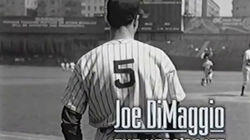
Joe DiMaggio: A Hero's Life
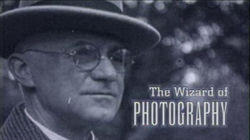
George Eastman: The Wizard of Photography
Recently Updated Shows
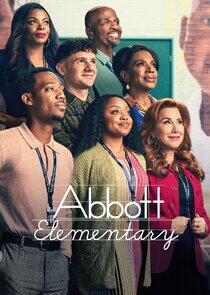
Abbott Elementary
In this workplace comedy, a group of dedicated, passionate teachers — and a slightly tone-deaf principal — are brought together in a Philadelphia public school where, despite the odds stacked against them, they are determined to help their students succeed in life. Though these incredible public servants may be outnumbered and underfunded, they love what they do — even if they don't love the school district's less-than-stellar attitude toward educating children.

Mythic Quest
Mythic Quest follows a team of video game developers as they navigate the challenges of running a popular video game.

Poppa's House
Poppa's House revolves around a legendary talk radio host and happily divorced "Poppa" who has his point of view challenged at work when a new female co-host is hired, and at home where he finds himself still parenting his adult son, a brilliant dreamer who is trying to pursue his passion while being a responsible father and husband.

WWE Premium Live Events
Beginning with the 2014 Extreme Rules Pay-Per-View on 4 May 2014 the WWE began airing all of their Wrestling Pay-Per-Views exclusively on the WWE Network. Subscribers who pay the $9.95 monthly fee will be able to view any Pay-Per-Views past, present and in the future exclusively on the WWE Network at no additional charge as long as their monthly fees are paid up-to-date.
